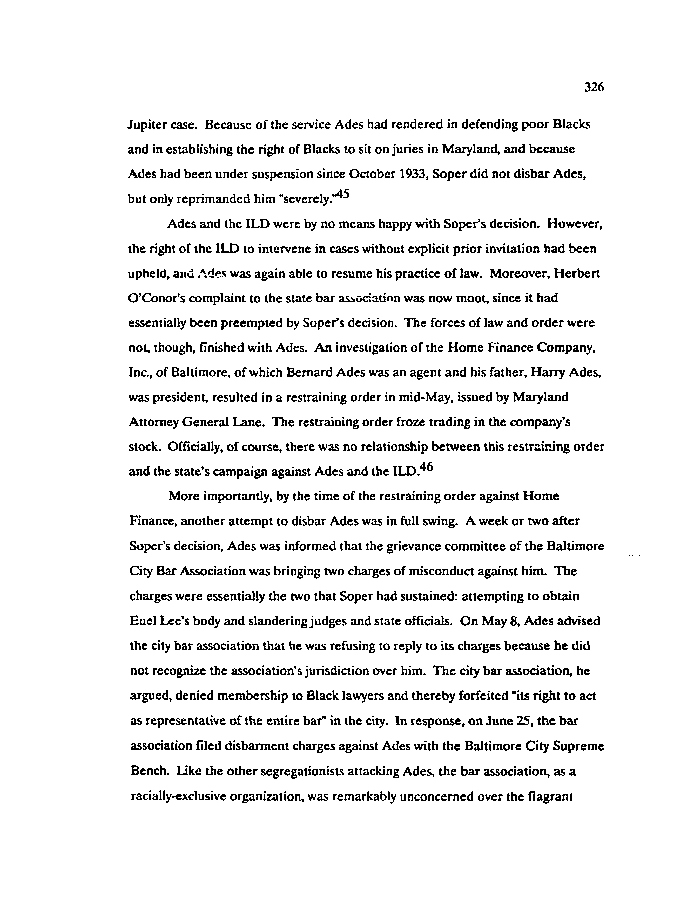|
326
Jupiter case. Because of the service Ades had rendered in defending poor Blacks
and in establishing the right of Blacks to sit on juries in Maryland, and because
Ades had been under suspension since October 1933, Soper did not disbar Ades,
but only reprimanded him "severely.
Ades and the ILD were by no means happy with Soper's decision. However,
the right of the ILD to intervene in cases without explicit prior invitation had been
upheld, aiiu Ades was again able to resume his practice of law. Moreover, Herbert
O'Conor's complaint to the state bar association was now moot, since it had
essentially been preempted by Soper's decision. The forces of law and order were
not, though, finished with Ades. An investigation of the Home Finance Company,
Inc., of Baltimore, of which Bernard Ades was an agent and his father, Harry Ades,
was president, resulted in a restraining order in mid-May, issued by Maryland
Attorney General Lane. The restraining order froze trading in the company's
stock. Officially, of course, there was no relationship between this restraining order
and the state's campaign against Ades and the ILD.
More importantly, by the time of the restraining order against Home
Finance, another attempt to disbar Ades was in full swing. A week or two after
Soper's decision, Ades was informed that the grievance committee of the Baltimore
City Bar Association was bringing two charges of misconduct against him. The
charges were essentially the two that Soper had sustained: attempting to obtain
Euel Lee's body and slandering judges and state officials. On May 8, Ades advised
the city bar association that he was refusing to reply to its charges because he did
not recognize the association's jurisdiction over him. The city bar association, he
argued, denied membership to Black lawyers and thereby forfeited "its right to act
as representative of the entire bar" in the city. In response, on June 25, the bar
association filed disbarment charges against Ades with the Baltimore City Supreme
Bench. Like the other segregationists attacking Ades, the bar association, as a
racially-exclusive organization, was remarkably unconcerned over the flagrant
|

